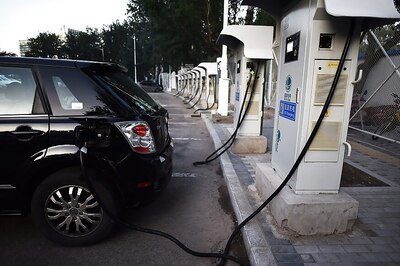
views
During a crisis, people rely on Google for trustworthy and valuable information to help them defend themselves and their families. According to the latest updates, the tech company promises that new technology could deliver earlier warnings of severe flooding occurrences to climate-vulnerable regions throughout the world.
Google claims that its artificial intelligence (AI) has accurately forecasted riverine floods up to seven days in advance, providing inhabitants in 80 countries with dependable predictions. The findings were published in the science journal “Nature,” and they highlighted the promise of machine learning in dealing with one of the world’s most common natural disasters.
Floods are the most common natural disaster, and almost 1.5 billion people, or roughly 19 percent of the world’s population, are directly exposed to significant hazards from major flood events around the world, according to a Google blog post.
Google’s AI-powered approach has considerably increased the accuracy of worldwide flood forecasts, reducing the average prediction time from zero to five days. The paper described in detail that the company trained machine learning models using historical events, river level readings, height, topography data, and other data, producing localised maps and executing hundreds of thousands of simulations for each place. This thorough methodology allowed the models to reliably anticipate oncoming floods, even in areas with insufficient data.
The method has had a particularly significant influence in underrepresented countries, such as Africa and Asia, where flood forecasting has historically been difficult because of a lack of streamflow gauges in most rivers. Google’s AI overcame this challenge by utilising available data and applying a machine learning model to basins where data was unavailable.
Google has made these flood projections available to a total population of 460 million across 80 countries via a variety of channels, including Google Search, Google Maps, Android alerts, and the own Flood Hub web app, which went live in 2022.
In the future, Google intends to continue researching the potential of machine learning in developing better flood forecasting models. The company has worked with academic researchers to improve the AI-driven technique, with the eventual objective of creating a global end-to-end flood forecasting platform.



















Comments
0 comment